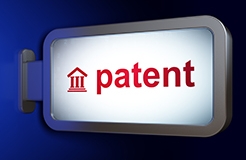没收到验证邮件?请确认邮箱是否正确或 重新发送邮件

#本文仅代表作者观点,未经作者许可,禁止转载,不代表IPRdaily立场#
发布:IPRdaily中文网(IPRdaily.cn)
作者:Laura Beth Miller律师 及Sarah Goodman律师
供稿:Brinks Gilson & Lione律师事务所
原标题:专利转让人禁止反悔原则不适用于多方复审程序
本文案件中,美国联邦巡回上诉法院裁决认为“专利转让人禁止反悔原则(doctrine of assignor estoppel)”不可适用于多方复审程序,因为国会在35 U.S.C. § 311(a) 中明确表达任何非专利所有人均可递交IPR请愿。这意味着通过雇员转让其发明而获得专利所有权的雇主,仍然面临着可能受到来自专利转让人或其利益相关人在未来发起IPR攻击的风险。
不久之前,美国联邦巡回上诉法院就以下问题进行考量并作出裁决:专利转让人禁止反悔原则(doctrine of assignor estoppel)是否可适用于多方复审(inter partes review, IPR)。法院认为该原则不可适用,因为35 U.S.C. § 311(a)明确的表达了国会的意图,既任何非专利所有人均可递交IPR请愿。
案件背景
Arista Networks, Inc. v. Cisco Sys., 涉案的597专利涉及保护计算机网络设备免受外部攻击的技术。597专利的发明人在发明期间,曾作为员工就职于Cisco Systems, Inc.。发明人将这项发明的专利权转让给Cisco并保证将帮助获得并执行该专利。发明人随后从Cisco离职并与他人共同创立Arista Networks, Inc.
此后,Arista对597专利的若干权利要求递交IPR请愿。在PTAB的最终书面裁决中,受挑战的权利要求中仅有部分被无效。Arista对没有被无效的权利要求裁决进行上诉。Cisco交叉上诉裁决中被无效的权利要求,并称PTAB错误的没有适用“专利转让人禁止反悔原则”,以阻止Arista在最初对专利的有效性进行挑战。
专利转让人禁止反悔的相关问题
“专利转让人禁止反悔原则”起源于英美法系,该原则禁止专利的转让人或其利益相关人(privity),如转让人所设立的公司,在随后对其所转让专利的有效性进行挑战。这一原则得到美国最高法院的承认。该原则同时也被ITC程序所采纳适用。在本案相关的ITC调查中,委员会认为“专利转让人禁止反悔”阻止了Arista对Cisco专利有效性的挑战。
上诉中,联邦巡回法院首先对PTAB认为不适用“专利转让人禁止反悔原则”这一裁决是否具有复审性(reviewable)进行评估。法院认为是可进行复审的,因为这一裁决与PTAB局长作出的初步可专利性评估没有紧密联系,也与即便达到可专利性评估的门槛但局长决定不启动复审没有联系。
随后法院对该原则是否可适用(applicability)于IPR程序进行考虑。PTAB提供了该原则不适用IPR程序的两点原因:(1)35 U.S.C. § 311(a) 说明了国会对挑战专利有效性能力的广泛授权,及(2)国会没有明确承认“专利转让人禁止反悔原则”在IPR中的适用。法院支持了以上观点,总结到§ 311(a)条款的法律语言 – “任何非专利所有人均可向专利局递交启动IPR的请愿…… ”明确地表明国会没有意向在IPR请愿中排除专利转让人。
法院意识到这一裁决可能会导致挑选法院(forum shopping)的情况出现,但总结认为这一裁决与IPR的目标一致。本裁决还解决了先前法院在裁定可复审性问题中潜在不一致的问题。比较Husky Inj. Molding Sys. Ltd. v. Athena Automation Ltd., 838 F.3d. 1236 (Fed. Cir. 2016) 与 Wi-Fi One, LLC v. Broadcom Corp., 878 F.3d 1364 (Fed. Cir. 2018)
启示
本案对公司中有雇员向雇主转让其发明的情况具有重要意义。即便专利所有人可在地区法院阻止专利转让人进行的有效性挑战,专利所有人仍可能受到来自专利转让人或其利益相关人发起的IPR攻击。一个开放性的问题有待继续考察,既这样的情况可否通过签订合同条款来避免,其中特别指出雇员将放弃在随后诉讼中对专利有效性进行挑战的权利。
附:英文全文
Assignor Estoppel Does Not Apply in an Inter Partes Review Proceeding
On November 9, 2018, the United States Court of Appeals for the Federal Circuit considered whether the doctrine of assignor estoppel should apply in the context of an inter partes review. The Court concluded that the doctrine of assignor estoppel does not apply because 35 U.S.C. § 311(a) unambiguously reflects Congress’s intent that any person who is not the owner of a patent may file an inter partes review petition.
Background
The patent at issue (the ’597 patent) relates to protecting computer network devices from external attacks. The inventor of the ’597 patent was a Cisco Systems, Inc. employee at the time of the invention. He assigned his rights to the invention to Cisco and provided assurances that he would aid in obtaining and enforcing the patent. The inventor subsequently left Cisco and co-founded Arista Networks, Inc.
Thereafter, Arista petitioned for an inter partes review of certain claims of the ’597 patent. In its final written decision, the Patent Trial and Appeal Board (“PTAB”) concluded that only some challenged claims were invalid. Arista appealed the decision upholding certain claims as valid. Cisco cross-appealed the decision finding certain claims invalid, and asserted that the PTAB erred by not applying the doctrine of assignor estoppel to prevent Arista from initially challenging the patent’s validity.
Assignor Estoppel Issue
The doctrine of assignor estoppel is a common law principle that bars the assignor of a patent, or those in privity with the assignor, such as a corporation founded by the assignor, from subsequently challenging the validity of the patent. The doctrine has been recognized by the United States Supreme Court. See, e.g., Westinghouse Elec. & Mfg. Co. v. Formica Insulation Co., 266 U.S. 342, 349 (1924). The doctrine also has been applied in the context of ITC proceedings. In a related ITC investigation, the Commission held that assignor estoppel barred Arista’s challenge to Cisco’s patent validity.
On appeal, the Federal Circuit first evaluated whether the PTAB’s decision not to apply assignor estoppel was reviewable. The Court concluded that it could review this decision because the issue was not closely related to the PTAB Director’s preliminary patentability assessment or the Director’s discretion not to institute even if the threshold patentability assessment was met.
The Court then considered the applicability of the doctrine in the context of IPR proceedings. The PTAB had provided two reasons for its determination that assignor estoppel did not apply in inter partes review proceedings, concluding that: (1) 35 U.S.C. § 311(a) demonstrates Congress’s broad grant of the ability to challenge patent validity and (2) Congress has not expressly recognized assignor estoppel in the inter partes review context. The Court agreed, concluding that the language of § 311(a) - “a person who is not the owner of a patent may file with the Office a petition to institute an inter partes review . . .” - unambiguously demonstrates that Congress did not intend to exclude an assignor from petitioning for inter partes review.
The Court recognized that its decision could lead to forum shopping, but concluded that the decision was consistent with the goals of inter partes review. The decision also resolves a potential inconsistency in prior Court rulings on the issue of reviewability. Compare Husky Inj. Molding Sys. Ltd. v. Athena Automation Ltd., 838 F.3d. 1236 (Fed. Cir. 2016) with Wi-Fi One, LLC v. Broadcom Corp., 878 F.3d 1364 (Fed. Cir. 2018) (en banc).
Implications
This case may be significant for companies with employees who assign inventions to their employer. Even though a patent owner could potentially block a validity challenge from an assignor in district court, the patent owner may still be vulnerable to an inter partes review petition by the assignor or those in privity with an assignor. An open question remains as to whether this scenario could be avoided through contractual provisions that specifically waive the right to challenge validity in subsequent proceedings.
发布:IPRdaily中文网(IPRdaily.cn)
作者:Laura Beth Miller律师 及Sarah Goodman律师
供稿:Brinks Gilson & Lione律师事务所
编辑:IPRdaily赵珍 校对:IPRdaily纵横君
“投稿”请投邮箱“iprdaily@163.com”

「关于IPRdaily」
IPRdaily成立于2014年,是全球影响力的知识产权媒体+产业服务平台,致力于连接全球知识产权人,用户汇聚了中国、美国、德国、俄罗斯、以色列、澳大利亚、新加坡、日本、韩国等15个国家和地区的高科技公司、成长型科技企业IP高管、研发人员、法务、政府机构、律所、事务所、科研院校等全球近50多万产业用户(国内25万+海外30万);同时拥有近百万条高质量的技术资源+专利资源,通过媒体构建全球知识产权资产信息第一入口。2016年获启赋资本领投和天使汇跟投的Pre-A轮融资。
(英文官网:iprdaily.com 中文官网:iprdaily.cn)
本文来自Brinks Gilson & Lione律师事务所并经IPRdaily.cn中文网编辑。转载此文章须经权利人同意,并附上出处与作者信息。文章不代表IPRdaily.cn立场,如若转载,请注明出处:“http://www.iprdaily.cn/”

 共发表文章4693篇
共发表文章4693篇文章不错,犒劳下辛苦的作者吧
- 我也说两句
- 还可以输入140个字












